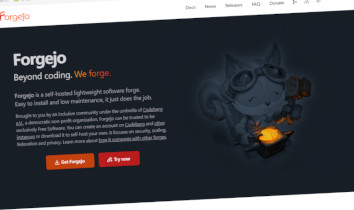
Build GSA Lists by Piggybacking Other SER Users
GSA Search Engine Ranker has been around since 2012, and even now - 12 years later - is still widely in use. In the SEO-software world, this is probably akin to being a great-great-grandfather who is still pulling a 9 to 5 down the backlinks mine. Over all those years, SER must have been the builder for millions of profiles, article postings, and blog comments on hundreds of thousands of different domains. Over a decade's worth of link building by thousands of customers has resulted in many successes and failures, much learned about building backlinks and SEO tactics, and countless proxies consuming gigabytes of bandwidth. But SER has also left it's own footprints too, which we can take advantage of.
Customisation is Key
Those in the know regarding SER will have come to realise that one of the best ways to squeeze value out of the app is to customize everything. SER is extremely user-configurable, with almost every aspect of posting editable by the end user. However, many users do not even attempt to edit any of the default data that comes with SER.
What exactly am I talking about here? I'm talking about the various .dat files you can find in your GSA Search Engine Ranker > Engines directory. Take for example 'about_yourself.dat' - this contains the default spintax for profile type links. It contains some standard spun sentences detailing generic information about random people, including occupations, addresses, hobbies, and so on. It did it's job well enough years ago, but has remained pretty much unchanged. And what's more, is that I'd say the vast majority of SER users don't even bother to edit it. With so many people using the same spintax, it's uniqueness quickly disappears. This means it gets easier and easier to find places where people have been building profile links. Take this search phrase for example - "It's called often Eastern or cultural capital of". This is one of hudreds of unspun lines from 'about_yourself.dat', and a quick Google search using it will bring back thousands of profile type links.
Another often overlooked .dat file is 'auto_anchor-article.dat'. This is the default spintax that is used when you have the 'How to Link' option in your article manager set to 'Sentence at a random location' or 'Sentence at the bottom' - which are the default options, and usually not changed by your average SER user. So this means that thousands of articles are being posted featuring sentences from the standard unchanged years-old default spintax. To check this out yourself, try the search query - "When you cherished this article". Once more, thousands of results of article type links.
Here's one for blog comments and guestbooks, along with other profile links: "Feel free to surf to my weblog" - a product of the default 'auto_anchor.dat' file.
Over a Decade of Data
So, by unspinning the default spintaxes that come with SER, it's possible to find footprints of previous successful postings, dating back years. All you need to do is take sections of the unspun text, use them as footprints in your favourite SERP scraper, harvest the urls, and start building/adding to your verified list. I've done most of the hard work for you and have unspun and cleaned up the default about_yourself.dat, auto_anchor.dat, auto_anchor-article.dat, and as a bonus have included some unspun titles from SER's title generator: You need to login to see this content.
This provides an easy way to get started with a verified list, or add to your existing list with a relatively high success rate, as others have already proved it's possible to post (at least in the past anyway!). These spintax footprints can also sometimes uncover PBN sites that SER users are posting to, which you can use to find profitable niches or money sites.
Conclusion
In these days of AI content generation being readily available to any internet user, there is really no excuse to be using spintax content that was put in place many years ago. A quick prompt will get you dozens/hundreds of generic profile snippets, simple blog comments, and even of course full articles with whatever links you want pre-inserted. Take 30 minutes or so to pre-generate some content for your projects (and make sure it's 'helpful'!), as this is sure to help with indexing, and more importantly will help to hide your tracks from others.




